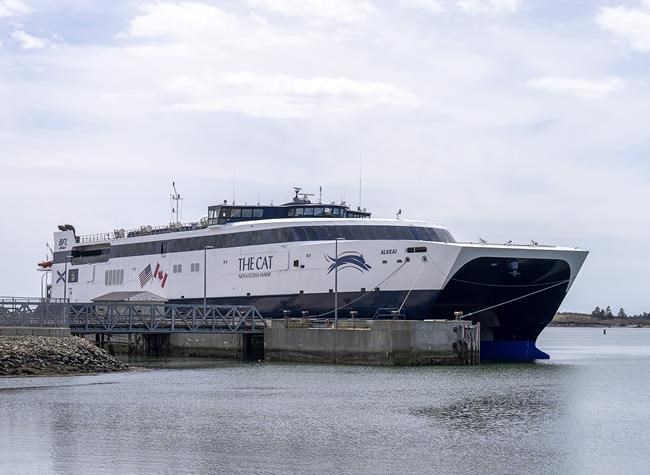HALIFAX — Nova Scotia’s heavily subsidized ferry that operates between Yarmouth, N.S., and Bar Harbor, Maine, will be the subject of an economic impact study, the premier said Tuesday.
Tim Houston told reporters that taxpayers who covered the ferry's $17-million annual subsidy would have liked more passengers to have used the service during the recently concluded sailing season.
Bay Ferries said on Monday the ferry transported slightly more than 36,000 passengers and nearly 15,000 vehicles between May 19 and Oct. 10.
“I think Nova Scotians would like to see those numbers a lot higher for sure,” Houston said.
The premier said the company's lease for the ferry has been extended for another year, adding that service is expected to resume in 2023. But Houston said it’s time to determine whether Nova Scotians received good value for the 2022 subsidy, which amounted to roughly $472 per passenger.
“If it’s not we will come up with something else, but we will not leave anyone behind,” he said, referring to the economic development of the region.
Public Works Minister Kim Masland said a request for proposal for a “broad overview” of the economic impact of the ferry will be issued this fall. The methodology for the study still needs to be determined, Masland said.
“There’s never been an impact study done, and it’s very important to Nova Scotians,” she said.
Liberal Leader Zach Churchill, who represents the Yarmouth riding, said he supports the study but wants it to be independent and objective. “We want to push for the tourism industry to play a critical role in that analysis."
The high-speed ferry service resumed last spring following a three-year hiatus due to COVID-19 and the construction of a terminal in Bar Harbor. The previous Liberal government had set a target of 60,000 passengers per season when the service was established in 2016.
This report by The Canadian Press was first published Oct. 18, 2022.
The Canadian Press



